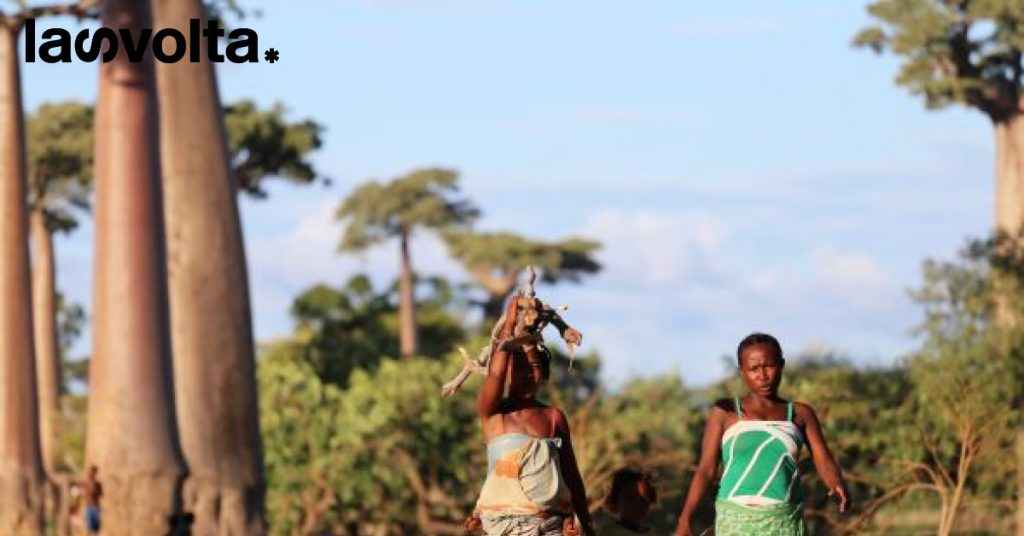Africa’s food crisis and looming population surge

Africa is thesecond-most populouscontinent in the world, after Asia. Statista predictsthat its population is set to reach2.5 billion by 2050whereas theUN forecastsa global population of nearly10 billion by the same year. Climate change and geopolitics have proven to have a great influence on Africa’s food security, contributing to the ongoing hunger crisis the continent is facing. A recent report by the Food and Agriculture Organization of the United Nations (Fao) and the African Union estimates that346 million peoplein Africa are victims of this food crisis. So, what exactly is the food crisis? According to Fao,food securityis a situation “when all people, at all times, have physical, social and economic access to sufficient, safe and nutritious food that meets their dietary needs and food preferences for an active and healthy life”.Thus, the opposite of this term isfood insecuritywhich often translates into a food crisis. Additionally, food safety refers to the handling, storing and preparing of food to maintain food nutrients and prevent infection. The World Health Organization (Who) affirmsthat food safety, nutrition and food security are inextricably linked in assessing food systems. Food insecurity is classified according to different levels of severity, specifically when either: ●People compromise on food quality and variety; ●There is reducing food quality and people begin to skip meals; and ●When there is no food for one day or more. As of 2022, there is an ongoing increase in food insecurity in Africa of whichclimate changeis one of the causes.Increasing global temperaturesand lack of regular rainfall have led to dry land, crop loss, death of cattle and starving people. It is for this reason that pastoral and agricultural African communities are neither able to carry on their farming activities nor feed themselves. Geopolitics has also contributed to this crisis. There has been an increase inglobal grain pricesthat hinders access to food for people living below the poverty line. However, many Africans have been affected in different ways, irrespective of their economic status. Some reports indicate that theRussia-Ukraine waraffects access to food since both States supplymore than 40%of Africa’s wheat. This explains the drastic increase in food prices across African States, which has made it difficult for citizens to purchase items like bread. For instance, somefamilies in Kenyahave even opted to skip lunch as they consider it a luxury due to the price increase. The food crisis has triggered debates on the crucial need for Africa to be more self-reliant. In the wisewords of Malawian President, Lazarus Chakwera,«There is no one outside Africa who is coming to build Africa the way we want it to be built…We already have the natural and mineral resources».This is true as agricultural land in Africa comprises 40% of its total land area. Ajournal articlesimilarly places blame on Africa’s reliance on imported food rather than developing their agricultural sector and, most importantly, food policies. Even if self-reliance is achieved, it has to be maintained through policies that regulateagriculture,food safety, trade and development. Africa has no food policy which already creates instability in matters of food safety and security. Consider the issue of hazardous aflatoxin in African maize before the 2022 food crisis. AnAfrican Food Policywill bridge the different policy areas and different policy levels through which food systems are governed, identifying priorities for reform and bringing them together under a single roof. Why is the discussion on Africa’s food crisis relevant? Africa is dangerously close to being severely food insecure, causing global organizations like the Who to step in and offer assistance. The situation is worsened by climate change where drought is adversely affecting crop production. The combined effect of food insecurity and climate change is one of the causes of mass migration. The growing African population must also be taken into consideration because if we cannot feed people now, what about in the future? While food security isa human entitlement, leaders must further consider increasing access to education for girls, especially in rural areas, to supersede social and religious stigma on contraceptive means. Evidently, a2020 studyindicates the link between educating girls and a reduction in fertility rates. Our leaders must hasten discussions on an African food policy and make significant efforts to combatcorruption. Even as we power through the food crisis, we truly must work on these issues on the road to self-reliance. The current infrastructure of most African States can hardly support all its occupants; hence, we must not put this discussion on the back burner, or we will suffer avoidable deaths.